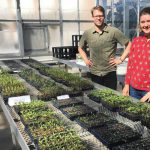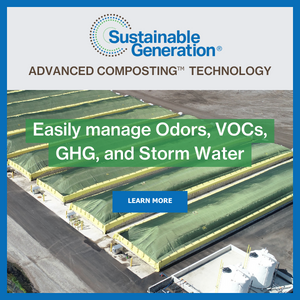BioCycle February 2015
California Governor Aggressive On Climate Action
In January, California Governor Edmund G. Brown Jr. delivered his fourth inaugural address, in which he focused primarily on climate and energy issues, laying out three goals for the state to meet in the next 15 years: 1) Increase California’s electricity derived from renewable sources from one-third to 50 percent; 2) Reduce current petroleum use in cars and trucks by up to 50 percent; and 3) Double the efficiency of existing buildings and make heating fuels cleaner.
To support these energy goals, Brown will continue his work on increasing distributed generation, rooftop solar, microgrids, energy storage and electric vehicles. He is asking for contributions from many stakeholders to accomplish this. “It will require enormous innovation, research and investment,” stated Brown. “And we will need active collaboration at every stage with our scientists, engineers, entrepreneurs, businesses and officials at all levels.”
Other groups and members in California government are doing their part to reach Brown’s energy and climate goals. The California Air Resources Board developed a road map that outlines how the state can achieve up to a 50 percent reduction in petroleum use. In December 2014, State Senator Fran Pavley (D) introduced SB 32 that would require the state to set a 2050 greenhouse gas target of 80 percent below 1990 levels.
In addition to his above stated goals, Brown also emphasized the necessity to decrease methane, black carbon and other greenhouse gas emissions, and to work with land managers of farms, forests, and wetlands on carbon storage practices.
2014 GameDay Recycling Challenge
Ninety-one schools participated in the GameDay Recycling Challenge — a competition to engage fans of collegiate athletics in sustainability — during the 2014 college football season, representing over 30 athletic conferences. The schools compete in five categories, and are tasked with tracking waste and recycling weights from tailgating areas and stadiums to determine who recycled the most and who achieved the highest diversion rate. Coordinated through a partnership of the College and University Recycling Coalition (CURC), the U.S. Environmental Protection Agency’s WasteWise Program, Keep America Beautiful and RecycleMania, Inc., the 2014 GameDay Recycling Challenge was successful at recycling or reusing 1,098 tons of bottles, cans, paper, cardboard, food scraps and other recyclables. This equates to a reduction of 3,356 metric tons of greenhouse gases emitted.
The 2014 national winners of the GameDay Recycling Challenge were Clemson University, recycling a total of 30.36 tons, and Humboldt State University, with a diversion rate of 86.05 percent. A complete list of winners is available on the GameDay Recycling Challenge website. Winners will be recognized at the 2015 Collegiate Sports Sustainability Summit at Purdue University in June.
TerraCycle Zero Waste Recycling System
TerraCycle, a company specializing in collection and reuse of nonrecyclable, postconsumer waste, is now offering a strategy to recycle household and office waste. TerraCycle’s “Zero Waste Boxes,” distributed online, offer customers the option of separating waste by product (i.e., alkaline batteries; beauty products and packaging; drink pouches) or by room type (i.e. bathroom; kitchen; office). Customers also have the option of purchasing boxes that don’t require separation. Prices for the boxes vary, e.g., an “Office Separation Box” starts at $80. Each box comes with a prepaid shipping label printed on it, and customers are instructed to ship the box when it is full. TerraCycle then processes the material into new products such as park benches, bicycle racks and watering cans. Across the globe, TerraCycle has been successful at repurposing 2.5 billion pieces of food and beverage packaging waste, office and school supply waste, e-waste, and other items such as discarded cigarette filters.










